Inspirational, passionate, meditative and massive. These are only some of the characteristic we can apply for a genre called “post rock”, which is around for some time already, but rarely gets adequate attention. This rock & metal style, has roots already in the sixties and drone rock of bands as The Velvet Underground. In addition, tt doesn’t follow traditional rock arrangements and rather concentrates of extensive sound pallet. Therefore it is often not far from genres as alternative rock, indie or shoegaze. An invitation for this article was accepted by some of the top bands within post rock. Therefore, thanks to this variety, you can see number of opinions, life styles, gear preferences but also a reason why some of the bands don’t actually like the term “post rock”.
The list of bands who participated: Sleepmakeswaves (SMW), If These Trees Could Talk (ITTCT), Russian Circles (RC), God Is an Astronaut (GIAA), Long Distance Calling (LDC), Mono
I always enjoyed post rock shows, because of its sound. You wouldn’t even expect it but it’s practically the heaviest stuff ever. Take Age of the Fifth Sun from the God Is An Astronaut. It seems as soundtrack for salt cave, but when they play it live, it’s insanely heavy. Can you explain me this incredible sound factor?
ITTCT: I think that comes from the fact that no vocals are present, so the sound is the only thing to base the heaviness factor off of. I think once vocals are present, your mind tends to focus on that, even if the underlying musical theme is super heavy. Once you take that factor out, you are squarely focused on the musical part of it.
LDC: Well, I guess it´s because the albums are being recorded in a different mood, you think about the songs a lot and then you put them on tape and try to make sure that every little detail is there. In the live situation the band feel differently, they just want to let it all out and I guess you even play heavier than in the studio, so I guess this is pretty natural.
SMW: We hear similar comments from people after they have seen us live, they often say something like: “Oh, you guys were so heavy compared to your CD” or something along those lines. I think it’s very true. There is a lot of heaviness, wall-of-sound type of thing in our live show, which we simply cannot translate to a studio recording. With Love of Cartography, we believe we came a lot closer to capturing our live sound on record. This was one of the primary goals recording this album and a big reason we worked with producer Nick DiDia. I believe a lot of the heaviness live has to do with us as musicians becoming a lot more familiar with pushing the limits of our equipment.
RC: Our songs are meant to be experienced in the live setting. The audience isn’t given the option to turn the volume down. They must experience the music as it was intended.
GIAA: There is a careful balance between ambience and the heavy guitar on that piece. On record we went for a more meditative experience by keeping the ambient pads more dominant and live a more high energy experience by pushing the drums, guitars and bass. There is obvious a huge increase of volume live which always makes things more monstrous.

Your shows are also very energetic. Could you try to describe the mood, to which you switch, where you are on the stage?
ITTCT: Hmmmm. Good question. I think right before we go on, we each get into our own individual zones. It helps to have a Zen like attitude before going on so you can feel limber and loose and really allow the music to enter your blood stream. Aside from that, we just get our game faces on. (Laugh)
RC: We just try to slip into a state where we’re not thinking about anything at all. Some nights are easier than others. In a truly good feeling set, you get lost in it all. On bad nights we just try not to think about the next part and make sure we’re enjoying the moment. Thinking on stage is bad.
SMW: I think a different part of ourselves emerge on stage. A part of ourselves that we are otherwise too insecure or self-conscious to share off the stage, but when we perform live it gives us a reason to not hold back. At a Sleepmakeswaves show, you will see the release of anger, happiness, sadness and bliss, all at the same time all without limits or constraint. As soon as we come off stage we are all absolutely depleted mentally. When it’s a show-day we know we must save all our energy for that one hour of craziness on stage.

When we are talking about live shows, interesting aspect of your live show is also the fact that you tend to change sets. Are you trying to build different mood combinations every night, or it is done just to keep you entertained?
SMW: We try and design sets with a lot of thought into their flow from start to finish, we aren’t just playing songs in a random order, there is method to the madness and building the right mood is what we are all about. Some nights we are playing alongside heavier acts and so we may want to bring out our heavier songs too, or tracks that will make us stand out and sound different. Other nights we play our own shows and we want to take the audience on a journey with us, so it always stays interesting.
Building the stairway to heaven
Give us an idea of your songwriting. How do you build these beautiful atmospheres?
GIAA: The atmospheres are built from guitars and synths with a heavy use of reverb and filters.
SMW: We use many layers of instruments, both traditional and electronic, to create atmosphere. A big part of creating atmosphere is the use of reverb and delay which is on almost every instrument we use. This thickens up the sound. I think the use of semi-hollow baritone guitars for clean sections of our music also gives them an atmospheric piano-like quality. A lot of creating atmosphere is about restraint, being patient and careful not to clutter the overall sound of the band so that the emotion still translates across to the listener.
LDC: I really don´t know 🙂 there´s no formula and I guess that´s the magic of this music.
Mono: I think music is a very special gift given to us to tell a story or show something that you can’t simply describe with words. Sure, it might sound arrogant but as a composer, I write music that would save me, and also allows me to think and look for the meaning of life. And from that, I also hope to give the strength to continue and live to other people in the world.
RC: The atmosphere is created with mutual understanding of the moment. Pace and scale are important to the broader scope of each song as well as the album as a whole. We appreciate the nuances of minimalistic music and try to incorporate that approach while writing.

Do you build on one man’s ideas or it is a group jam?
SMW: A lot of our writing recently has been an idea almost fully formed by one member of the band, and then the rest of the band member will build upon their parts with their own instrument. We don’t write very well by doing group jams, we prefer to instead write alone and then email each other ideas to work on before coming together in rehearsals. Plus, we are always going back and forth. Often the first part of the song we write might end up being the middle-section or the ending of a song and not necessarily the beginning. As individuals we are a group of perfectionists and so it takes us a long time to write music and all be happy with the end result. Our songs are always evolving and being tweaked too, when we play songs from older albums live, a lot of the parts are improvised or rewritten slightly every time.
LDC: We mainly jam the songs together. It could happen that someone in the band comes up with a riff or a basic melody but most of the time we are just jamming the shit out of us 🙂
Mono: I am writing songs alone and making demos, then share it with the band at the studio.
RC: We typically begin with a simple riff that catches everyone’s interest and then experiment with other ideas that feel appropriate. We record all of our practices so we can revisit the different versions and focus on the things that really excite us and replace or omit the elements that seem bland or unnecessary. We typically wait to arrange new songs until Brian and I have accumulated enough riffs and ideas that we can piece together. It’s always good to have extra riffs laying around.
ITTCT: There are three guitar players in the band, so it gives us a lot of options. The process, a lot of the times, starts with Zack or Cody building a skeleton from which they expand upon. Those two are the main songwriters per say. Once they have a good foundation, it’s brought to the group so each guy can get his flavor in. The thing with each guys tone and playing, the massive sound is then created.

Could you please give us an example, let say on amazing piece Barren Lands Of The Modern Dinosaur?
ITTCT: The name came from our guitar player Jeff. He’s usually really good with coming up with song titles that fit the specific musical arrangement. He’s always brought really good lyrical titles to our songs and he usually keeps a running list for later use. We wrote that one in a jam setting at practice mainly. Jeff had come up with the opening riff and we just built on top of it. In addition, it’s in a slightly different tuning than we usually play, so it was fun to play with. That one came together rather quickly if I remember correctly. That’s also one of my personal favorites to play because it builds so much throughout the entire song.
Follow the leader
Guitar always played an important role in rock music, but in post rock it seems even more important. Guitar seems to be serving a role of a spokesperson or even better – narrator.
RC: Without the element of a vocalist, something needs to fill that void and provide melody that can serve as a narrative throughout the song. Just as a vocalist can’t sing the entire time, a guitarist should know when to refrain and allow other elements step forward. Additionally, in our case, we like to pay attention to the groove of each song and that comes from the drums and bass. I’m always a fan of turning things around and make the rhythm the primary focus.
Mono: I think My Bloody Valentine are inventors. They’re really original and unique. It was the first band that I thought the guitar sound/noise was beautiful. I can say the similar thing about Jimi Hendrix, Led Zeppelin, Beethoven, etc. I think they’re great artists who found and did something that no one else has done at the time. So we want to be like that and trying to find something new as original and unique.
GIAA: I’m not sure if I fully agree, we have songs where the piano is more important and I feel heavy metal depends far more on the guitar. But of course it’s very important when the main melody is on the guitar.

If we take the structure of your songs, it would be too simple to say you all play post rock. There is some incredible musicianship with prog inputs. Can we say this is for you, the way to diversify within the post rock scene?
LDC: Exactly, we don´t really like the term “post rock”. It pushes the band in a tiny little genre that we never felt to be part of. Of course we have a lot of atmosphere, but LDC is much more than a post rock band. The guitars are important of course but there are typical “post rock sounds” which are cool but a lot (!) of bands from this genre sound exactly the same and that’s really boring. We try to break the cycle and also add electronic sounds and other stuff to our sound to make it more interesting. That’s why we sound like we sound, we have a lot of different influences like blues, funk, prog, metal, rock, trip hop, etc. We want to be open for everything and don´t limit ourselves.
RC: We don’t try to fit into or avoid any genre. We’re aware of our sonic identity but we rarely see it in terms of a label or a genre. We listen to all types of music and focus on elements that excite us.
GIAA: We began with electronics and it’s played a big part in our sound since then. We are focusing on writing the most moving and heartfelt melodies first and foremost. Stylistically we are pushing it in a heavier and darker direction with a good mix of ambience and electronics.
SMW: We are constantly trying to take our sound to new places. I believe the shift in sound between our debut release and our current releases is due to the desire to do something more lively, upbeat and fresh. We feel that Love Of Cartography is a much more rhythmic and technical album. This is partly due to our drummer Tim Adderley joining the band around the time we started writing the album. Tim has a huge amount of feel and technicality to his drumming and his drum style has inspired the guitars, bass and electronic sounds to follow. I guess we want to take post-rock to a place where you may not even be able to define it as post-rock anymore! The label is already so broad, hopefully it keeps expanding.
I can see a similarity with plenty of other bands, including Maybeshewill, who also started involving electronics and bigger production. Are the options of today’s technology, so attractive that post rockers can’t resist?
SMW: Sleepmakeswaves (and Maybeshewill) are bands which have been placed into the post rock category but I believe both bands are seeking to do unique things with the ideas the genre label has placed around them. Electronics have always been a part of Sleepmakeswaves, ever since our first release we have always had an electronic aspect to our sound. Our laptop is almost like another member of our group. We are also big nerds and love technology, so if we can incorporate cool music technology into our music then we will definitely explore the possibilities out there. It is an exciting time to be making electronic music as the workflow is getting easier and easier to do great things as software advances. So yes, I guess we just could not resist!
Trip to heaven
Another thing that always fascinated me on post rock music is it seems to be taking a listener to the sky. Music works as a medicine and it doesn’t matter, if it’s within post rock moods pessimistic or positive. Do you agree?
LDC: I agree but I think this should work for EVERY kind of music. Of course atmospheric rock is very easy to access to this mood but I think this is something that music should be in general. Get away from reality, that’s what music is for.
RC: I like that analogy but I don’t think this is exclusive to post rock. In regards to rock music, I think the progressive, psychedelic, and Krautrock movements perfected this in the 70s. Pink Floyd’s One of These Days serves as a great example. That song is heavier than most hard rock songs of that era, despite having no vocals.
Mono: Absolutely yes, hope through the darkness. If I were to borrow Beethoven’s words, I think music is something that ignites fire in men’s heart and bring tears to women’s eyes. (And of course, vice versa). Every individual reflects their own life through music like spiritual travels, like every cell in your body getting triggered unconsciously. After experiencing fantastic movies, books or art, there is a power that allows you to see and feel new values of your life which you didn’t really notice. We really hope we can create the same kind of experience to people.
When we are talking about trips to sky, I wanted to ask for your opinion on light drugs during the show. Next to a love for a beer, which is shared in our regions, basically the only time I smoke weed, is during a post rock show. The musical experience is suddenly, next to coming up with some great ideas, much deeper and on certain post rock shows, it is sth close to religious experience.
LDC: Yeah, it´s extending the musical journey, we hear you! 🙂 However, no more on that, that´s our secret.
RC: I’m all for marijuana and psychedelics that can enhance the experience. We don’t perform under any substance besides alcohol but I love getting a big old wiff of weed during our set. As far as writing, I think it’s beneficial to write in various states of mind. Certain drugs can give you a much needed change in perspective. I think there is something to be said for the literary approach of “write drunk, edit sober”. There’s a certain amount of truth there. Though, writing sober feels more honest and rewarding.
GIAA: Each to their own, I have never done that myself.
Did you watch the Interstellar movie? I’m a space addict and I guess the scene, where the ship is connecting to the space station at incredible speed, with Hans Zimmer soundtrack, must have been an incredibly experience (visually and sonically) for you too. ;D
ITTCT: I loved that movie! The soundtrack did such a good job of keeping you on the edge of your seat. I think that’s what I love most about post rock. It makes you feel like you’re on the edge of seat waiting for something to be set off. That movie made me feel that way front to back. I also think that’s why we are starting to see more post rock being used in cinematic pieces because the elements of both complement each other.
SMW: I watched Interstellar at the cinema recently with my girlfriend. Alex (bassist) has also seen the movie and both being sci-fi fans ourselves, we all enjoyed the movie. The Hans Zimmer soundtrack was great and I was immediately inspired to watch 2001: Space Odyssey the following morning. We have always wanted to produce music for a movie or video game. Being able to produce music for a space movie would be an honor. Perhaps one day…
LDC: Yeah I saw it and I really enjoyed the movie even though there are (of course) logical mistakes and the end was really cheesy but it was a cool movie with AMAZING pictures and I also loved the soundtrack, totally. I am also a space addict, I am collecting Lego Star Wars figures and I already got about 500 of them, haha.
RC: Yes! I recall one scene using John Murphy’s “Adagio in D Minor”. That song is always epic. It’s also prominent in the space film, Sunshine. Good stuff.

How do you approach the naming of the instrumental songs in general?
LDC: It´s very different. Most of the time we have totally stupid working titles and finalize it last minute before the deadline but sometimes it happens that we have a name before and try to create the music to the sound and meaning of the word.
RC: Ha. Most titles are cryptic references to people places and animals that we feel indebted to. Sometimes it’s a reference to a crazy situation that we’ve all experienced together.
GIAA: We ignore scenes and try to come up with a title that describes the emotion of the song in some way.
What do you think is the essence of post rock?
Mono: We don’t have any interest towards what genres we belong in, but because of the huge post-rock movement, we got the opportunity to draw our vision on a white big canvas and share with everyone in the world, so we’re very thankful for that. I want to continue to do what we do in pride, while being thankful to the fact that we’re living in the time where we can share and express the possibility, mentality, imaginations, spirituality, love, apathy and individualism that instrumental music can bring.
LDC: The essence of post rock is to create a lot of emotion with just a very few chords and you don´t have to be great instrument player. But that´s also the problem of post rock, as way too many bands that sound the same are killing a genre. So it needs bands like us which try to turn the wheel a bit more into the future.
GIAA: Post rock is a collection of music that post men and woman listen too during their delivery runs 🙂 How do we know? Because sometimes our CDs and vinyls don’t make it to the customer.

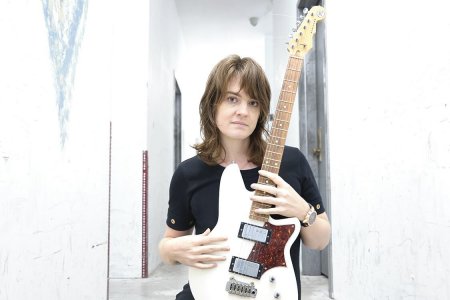
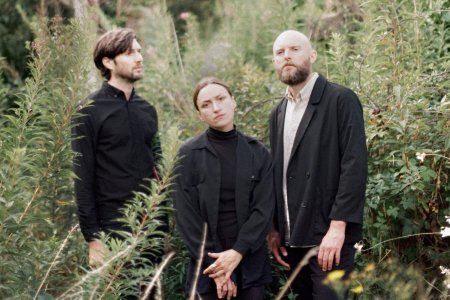
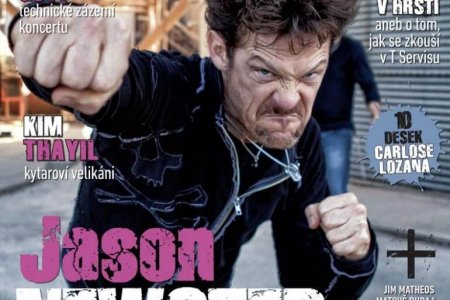
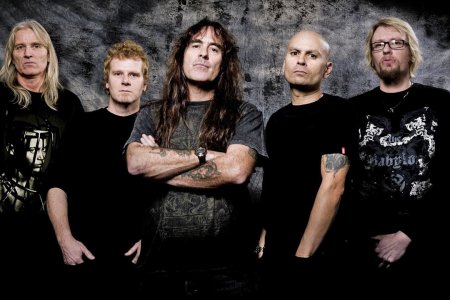
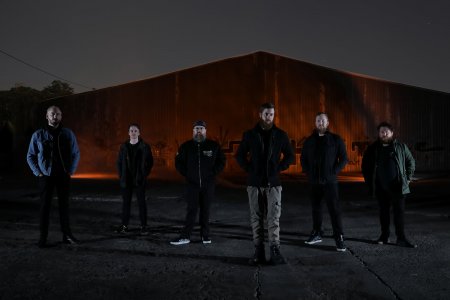

One thought on “A Touch Of Singularity – Post rock interviews”